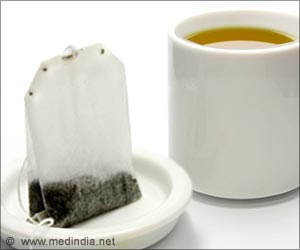Consumption of choline-rich foods during the third trimester of pregnancy had a positive effect on the baby’s cognitive ability in childhood.
- Consumption of choline-rich foods during the last trimester of pregnancy could boost IQ of babies
- Offspring of pregnant women who consumed 930 mg of choline per day had better cognitive ability
- Foods that are rich in choline include egg yolk, nuts, poultry and cruciferous vegetables
The demand for choline is high during pregnancy, yet most expectant mothers consume less than the recommended 450 mg per day.
"In animal models using rodents, there's widespread agreement that supplementing the maternal diet with additional amounts of this single nutrient has lifelong benefits on offspring cognitive function. Our study provides some evidence that a similar result is found in humans," said Marie Caudill, professor of nutritional sciences and the study's first author.
Choline during Pregnancy Boosts Babies IQ
For the study, 26 pregnant women were randomly divided into two groups and all the women consumed the same diet. The intake of choline and other nutrients were monitored as choline’s function may overlap with other nutrients like vitamin B12, B6 and folic acid.The research team had conducted two studies earlier on cognitive effects of maternal choline supplementation but had mixed results, maybe due to study designs that were not tightly controlled.
Richard Canfield, a developmental psychologist in the Division of Nutritional Sciences and the senior author of the study and Laura Muscalu, co-author of the study, tested infant information processing speed and visuospatial memory at 4,7,10 and 13 months of age.
The offspring in both groups showed cognitive benefits, but the infant's information processing speed was faster for a group of pregnant women who consumed 930 mg of choline per day when compared to the control group that consumed 480 mg/day over the same period.
The findings of the study suggest that current recommendations for daily choline intake (450mg) may not be sufficient to produce optimal cognitive abilities in offspring. The current recommended intake of choline is based on the amounts required to prevent liver dysfunction and on studies carried out in men.
Most of the foods rich in choline are not consumed these days. For example, eggs are high in cholesterol and health professionals including those in the government have raised caution about pregnant women consuming undercooked eggs, which may stop pregnant women from eating eggs altogether even though such risks are low for cooked eggs. Red meats are also avoided for their high saturated fat content, said Canfield.
Sources of Choline
Choline is a B vitamin which is a vital nutrient during pregnancy. Choline deficiency during pregnancy is linked to neural tube defects in offspring. Thus, pregnant women are advised to consume foods rich in choline or to take dietary supplements with choline. Some of the food sources of choline include egg yolks, lean red meat, fish, poultry, nuts, legumes and cruciferous vegetables. One large hard-boiled egg provides 147 mg of choline. About 80 grams of liver provides 356 mg of choline. Choline is also available in dietary supplements in combination with other B-complex vitamins. Some of the dietary supplement forms of choline include choline bitartrate, phosphatidylcholine, and lecithin.
Reference:
- Marie A. Caudill, Barbara J. Strupp, Laura Muscalu, Julie E. H. Nevins, Richard L. Canfield. Maternal choline supplementation during the third trimester of pregnancy improves infant information processing speed: a randomized, double-blind, controlled feeding study. The FASEB Journal (2017) DOI: 10.1096/fj.201700692RR
Source-Eurekalert
















